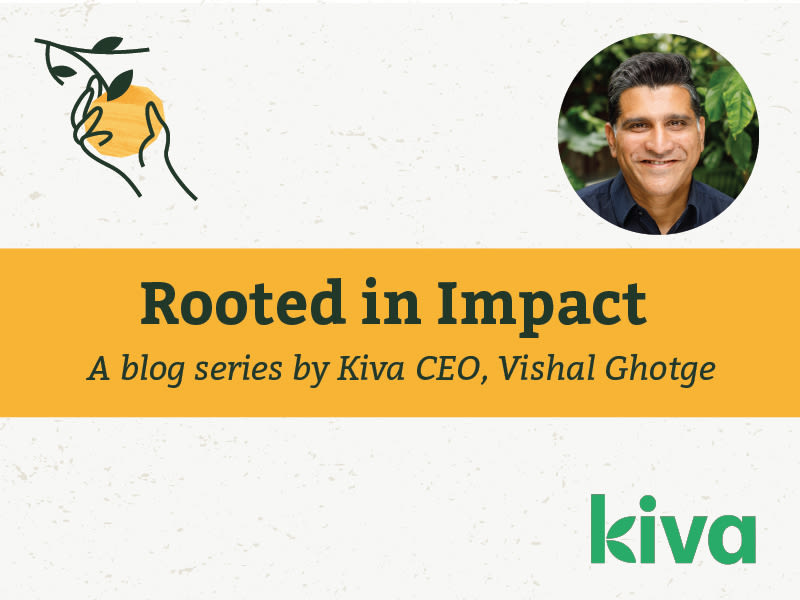Extenuating circumstances: Lending in conflict zones
February 4, 2019
الطريق مفتوح؟
Is the way clear?
This was the sentiment voiced by my Palestinian colleagues at Al-Ibdaa and Palestine for Credit & Development (FATEN) before we set off for the field. Under the complicated governance structures dictated by the Oslo Accords, the West Bank has been carved into Area A, Area B and Area C. Area A falls under the holistic jurisdiction of the Palestinian Authority, constituting a small portion of the total territory - 18 percent to be exact. Area C, conversely, remains almost entirely under the control of Israel and comprises over 60 percent of the West Bank. Thus, Israel unilaterally manages security and permitting in Area C. This is especially relevant to practitioners of microfinance in the West Bank because checkpoints and unpredictability undermine the ability of headquarters to access their branches, as well as the ability of loan officers to access their clients.
Even within Area A, governed by the Palestinian Authority, stability is elusive. While technically illegal, Israeli raids are still common. On my drive to visit a borrower with Al-Ibdaa just a few kilometers outside of Ramallah, we experienced the precarious nature of daily life in the West Bank. Israeli soldiers had blocked off access to the main road as they fanned out to search a housing duplex. Searches in general are highly contentious, but Palestinians are most reactive to the military's presence in Area A given the perceived slight against an already limited Palestinian sovereignty. News of the soldiers' presence had evidently already circulated, and groups of teenage boys were gathering with stones in hand. As we struggled to turn around and drive away from the crowd, stones were lobbed from behind our car which had now become a makeshift barricade. The Israelis returned fire with tear gas containers, one of which landed in front of us and another under us. We were, quite literally, caught in the crossfire.
 The Israeli West Bank barrier in Bethlehem
The Israeli West Bank barrier in Bethlehem A woefully lacking freedom of movement is not the only factor complicating the provision of microfinance in the West Bank and Gaza. A lack of autonomy also hampers the development of markets and human capital. For example, many rural Palestinians cannot invest in scaling their agricultural activities because most of the arable land is located in Area C. The Israeli Civil Administration (ICA) is notoriously stingy about providing permits for construction or well-digging, and less than 1 percent of Area C is earmarked for Palestinian development.
The pursuit of opportunity and employment is also obstructed by Israel's occupation of Palestine. Palestinians cannot seek work or education abroad without Israel's approval, which determines who can enter and who can leave through Allenby Bridge. One of FATEN's borrowers, Jihad, specialized in interior design and received an offer of contract outside the West Bank. When he arrived at the border to cross into Jordan, he was told he had been blacklisted by Israel for travel. Jihad maintains that he has no connection to subversive groups and was baffled by the decision. He now fashions furniture and runs a churro dessert shop in a small village.
For others, the situation is even more dire. For the 35,000 Palestinians living in H2 - an area fortified with checkpoints, roadblocks and military barriers in order to accommodate 500 settlers in Hebron - life is an economic wasteland. The forced closure of shops in H2's downtown area, coupled with the area's inaccessibility, has burdened H2 residents with absurdly high unemployment rates. According to FATEN's Hebron branch manager, H2 borrowers struggle to launch successful entrepreneurial projects and account for some of the branch's weakest repayment rates.
 A shuttered H2 in Hebron
A shuttered H2 in Hebron This section of H2 is closed off to Palestinians completely
This section of H2 is closed off to Palestinians completely It is not only the occupation that has created chaos and uncertainty in the lives of Palestinians. The fractious relationship between the Fatah-led Palestinian Authority and Hamas (see a brief history here) has caught Palestinians in the middle. After deadly clashes between the two flared in 2007, the Palestinian Authority requested that its 60,000 employees abandon their posts in Gaza in order to exert pressure on Hamas. In exchange, Palestinian employees in Gaza would continue to receive compensation. Over the course of a decade, however, those payments have been rolled back. In March 2017, their salaries were reduced by 30 percent. Then, in March 2018, the Palestinian Authority ceased transfers altogether. The wages were eventually partially restored in June 2018, but only at half their original value. Accusations have been floated that the move was an intentional attempt to plant discord in Gaza and undermine Hamas at the expense of Palestinians in Gaza.
The crisis has been disastrous for FATEN's Gaza lending portfolio. With many of FATEN's borrowers there dependent on the Palestinian Authority for an income, their capacity to repay has slumped. As of the end of last year, 31.9 percent of the portfolio was at risk for default. As a consequence, FATEN has de-prioritized the issuing of new loans in Gaza and is instead focused on restructuring loans case-by-case. For profit-driven investors, the inherent volatility of the West Bank and Gaza render Palestine an unattractive option. The beauty of Kiva's social-impact orientation is that such circumstances are met with empathy and resilience, ensuring that no matter the state of the conflict, the pool of finance available never runs dry.
PREVIOUS ARTICLE
Stumped on Valentine’s gifts? Take some ideas from around the world… →NEXT ARTICLE
What is social impact travel? →













